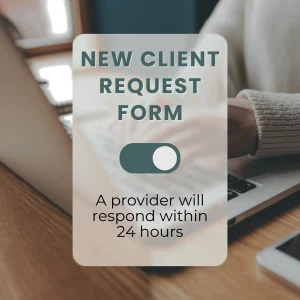Be Your True Self: The Role of Authenticity in Mental Health

Authenticity has been a buzzword lately, but it’s more than just that– it’s a foundation for aligning your actions with your true beliefs, desires, and values. In doing so, many experience the benefit of improved mental health and wellness and a more more content and fulfilled life.
The journey towards embracing authenticity is not merely about rejecting conformity, but about discovering and aligning with your true essence. This article explores the role of authenticity in mental health, its significance, challenges, and ways to live authentically.
Understanding Authenticity
At its core, authenticity is the courage to be oneself, unapologetically and freely. It involves shedding the layers of expectations set by society, culture, and even our inner critic. Defining authenticity can be as complex as understanding human nature itself; however, at its simplest, it is the alignment of one’s actions, beliefs, and values. This section will navigate through the essence of authenticity, distinguishing it from the act of conforming to external pressures, and highlighting its importance in living a mentally healthy and fulfilling life.
Authenticity in Mental Health
Recent psychological research has begun to unravel the intricate ties between living authentically and its beneficial effects on mental health. Studies suggest that individuals who embrace their true selves report higher levels of happiness, reduced stress, and a more profound sense of life satisfaction. This segment will delve into the science behind authenticity, presenting evidence that supports its role as a cornerstone of mental well-being.
Barriers to Being Your True Self
Despite the known benefits, the path to authenticity is often littered with obstacles. Societal expectations, personal fears, and insecurities can cloud our ability to remain true to ourselves. Understanding these barriers is the first step toward overcoming them. This section will explore the common challenges individuals face on their journey to authenticity and offer insights into navigating these obstacles.
Mental Health Impacts of Inauthenticity & Conformity
When individuals suppress their true selves to fit into societal molds, they often experience a disconnect between their actions and their true desires or beliefs. This dissonance can result in feelings of confusion, emptiness, and a lack of fulfillment. Over time, the effort to maintain an inauthentic persona can drain emotional energy, reduce resilience to stress, and lead to burnout.
Furthermore, constant conformity stifles personal growth and self-expression, leading to a loss of individuality. This loss can manifest as a lack of direction or purpose in life, making it difficult for individuals to make decisions that align with their true selves. The fear of judgment or rejection for being different can also exacerbate feelings of isolation and loneliness, further impacting mental well-being.
Barriers to Being Your True Self
Moreover, inauthentic living can impair relationships. When individuals are not true to themselves, it becomes challenging to form genuine connections with others. This lack of authenticity in relationships can lead to surface-level interactions that lack depth and emotional satisfaction, contributing to a sense of disconnection and loneliness.
Recognizing the mental health impacts of inauthenticity and conformity is crucial for fostering a culture that values and promotes authenticity. By understanding these consequences, individuals can begin to appreciate the importance of living authentically and take steps towards embracing their true selves, leading to improved mental health and overall well-being.
Authenticity in Mental Health in a nutshell
In conclusion, the pursuit of authenticity is not just a personal endeavor but a critical component of mental health. As society becomes more aware of the detrimental effects of inauthenticity and conformity, there is a growing need to encourage and support individuals in their journey towards authentic living. This not only benefits individual mental health but also enriches our communities by embracing diversity, fostering genuine connections, and promoting a culture of acceptance and understanding.
FAQ's About Therapy in New Jersey
How do I get started as a new client?
New Clients can reach out to us directly via call, text or email here:
Or, you can complete a new client form and we’ll reach out to you within 24 hours here:
What are your specialties?
Our therapists have dedicated their clinical work to specific niche areas. Check out our therapy service page here to learn about our areas of expertise
What type of therapy do you offer?
We offer traditional and non-traditional therapy
Traditional therapy, such as talk therapy incudes:
- Individual therapy
- Couples Counseling
- Family Therapy
- Cognitive Behavioral Therapy
- Emotion-Focused Therapy
Do you offer Ketamine Therapy?
Yes! Ketamine has shown promise in treating various mental health conditions, including PTSD, Anxiety, Depression, Phobias and OCD. As Ketamine therapy providers, we offer this service to help clients break cycles of thinking traps that lead to compulsive behaviors.
Is Online Therapy As Effective As In-Person Therapy?
Online therapy is essentially face-to-face counseling, just conducted remotely. Studies show that teletherapy is as effective as traditional counseling. Professional organizations and state governments recognize its benefits and have set regulations for it. However, like any therapy, its success in achieving your goals isn’t guaranteed. It’s important to discuss with your therapist whether teletherapy is working for you.
What age groups do you serve?
Currently, we work with New Jersey clients ages 10+
Do you offer traditional talk therapy?
of course! though we have some unconventional therapy approaches, we are rooted in evidenced based practices. Talk therapy is a major player in the therapy room! See What we Treat and Integrative Services for more information
What Geographic Areas Are Served?
Currently, we serve clients in New Jersey and are expanding to other states as telehealth laws evolve. While telehealth offers the convenience of attending sessions from anywhere, state laws require clients to be in-state during their session.
Does my insurance cover my visits?
We provide”Courtesy Billing” for clients who are using the Out-of-network insurance benefits.
Our Insurance Page shares a small blurb about Why We Left Insurance Panels
Can I Change Therapists If I'm Not Happy?
Yes, you can switch therapists to another provider within the practice, or we can provide you a referral if preferred. We want to ensure that your time and effort are well spent, and that you are getting the relief you need, that’s why we work collaboratively with each other in the practice, as well as outside therapists who we know and trust.
What is your cancellation policy?
We ask that clients provide at least 24 hours notice in the event that they need to cancel to avoid the 50% cancellation fee. we understand that life happens and do our best to be flexible & reschedule.
How Do I Know If Therapy Is Helping?
You should feel like you’re making progress. Signs it’s working include:
Feeling comfortable talking to your therapist
Your therapist respects boundaries
You’re moving towards your goals
You feel listened to
You’re doing better in life
Your self-esteem is getting better
Is Online Therapy Easy to Use for Non-Tech-Savvy People?
Yes, it’s pretty simple to access sessions. You’ll need basic internet skills, such as opening and visiting the patient link sent to you via email. It’s similar to video chatting like Facetime or Zoom. We can also walk you through it on the phone the first time to ensure a strong connection
What Questions Should I Ask My New Therapist?
Feel free to ask anything. Some good questions are:
- How often will we meet?
- What do you specialize in?
- What experience do you have with my issue?
- What outcomes can I expect?
- How will I know I’m progressing?
- How long do you usually work with clients?
- How will we set my treatment goals?
How Should I Prepare for My First Session?
Showing up is all that you need to do! But if you really want to get the most out of session, it could help to take some time to think about what you want from therapy. It helps to write down your goals, questions you have or things that you feel are important to share.
What is the difference between associate therapists & fully licensed therapists?
Our Qualifications:
Our founder, Rebecca Sidoti, is a highly qualified, state-licensed therapist and supervisor with extensive training in anxiety related disorders and innovative treatment such as Ketamine Therapy. Mind by Design Counseling adheres to standards set by the our governing counseling boards.
To see each providers credentials, training and licenses, visit our “Meet the Therapists” Page to learn more.
- LAC/LSW are therapists who may practice clinical work under the supervision of a fully licensed therapist.
- LPC/LCSW are therapists who have completed the necessary clinical hours post-graduation under supervision and can practice clinical work independently.
Is Virtual Counseling Suitable for Everyone?
Online therapy might not be as effective for individuals with chronic suicidal thoughts, severe trauma, significant mental health history, or those recently in intensive care. Such cases often benefit more from traditional, in-person counseling. We’ll help you decide if our online services are right for you during your intake and evaluation.
What Equipment is Needed for Online Therapy?
To join a session, log in using the credentials we provide. No downloads are needed. Our platform, compatible with both individual and group sessions, requires:
A computer or mobile device with a webcam and internet access.
We’ll help you test your setup before your first appointment to ensure a reliable connection. iOS users should use the Safari browser for mobile and tablet sessions.
What Questions Will Therapists Ask Me?
It depends on your goals. Expect questions about your thoughts, feelings, relationships, work, school, and health. They’ll ask to understand your therapy goals.
How Do You Keep Client Information Secure?
Security and Confidentiality of Sessions:
Your privacy is crucial to us. We use TherapyNotes, a HIPAA-compliant platform, ensuring secure and confidential teletherapy sessions. This platform’s security features include encrypted video connections, secure data transfers, and encrypted databases, ensuring your information is safe at all times.
What is VRT used for?
we use VRT to support Exposure Therapy, a long standing traditional therapy modality to treat phobias, anxiety and stress. we send a headset directly to your home so you can access VRT from anywhere.
VRT not only helps with exposure therapy for phobias, but is great for ADHD, mindfulness, PTSD and social anxiety.







